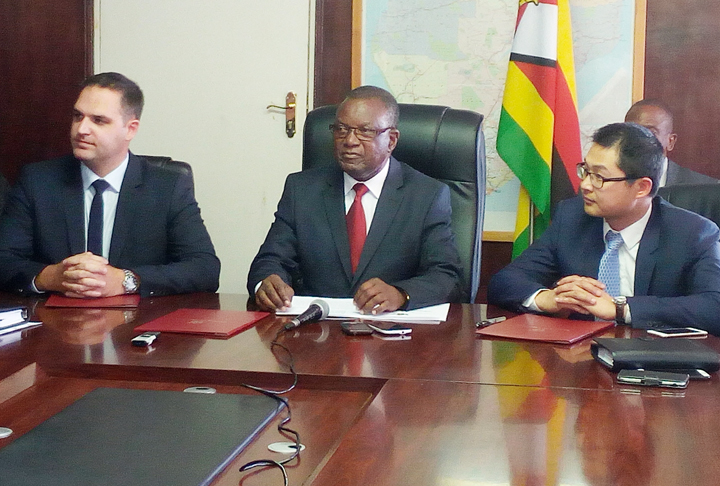Zimbabwe yesterday signed an agreement with Geiger International and China Harbour Engineering Company (CHEC), which spells out the framework for the $2.2 billion Beitbridge-Harare-Chirundu rehabilitation and dualisation project.
The highway is Zimbabwe’s busiest and most economically significant, and is part of the North-South Corridor that directly links landlocked Zimbabwe and Zambia with access to the Indian Ocean ports of Durban and Richards Bay in South Africa.
According to Zimbabwe’s transport ministry, a feasibility study completed in June 2013 established that $1.3 billion would be required for the rehabilitation and dualisation of the Beitbridge-Harare stretch, while an additional $883 million (according to a 2011 study) would be required for the link between the capital and Chirundu on the border with Zambia, bringing the total project cost to nearly $2.2 billion.
The government in June announced CHEC as the main contractor of the project. Geiger International an Austrian firm based in China, was named as the financier of the project.
Transport Minister Jorum Gumbo said the agreement provided the framework for the parties to negotiate and sign specific contracts.
“Discussions carried out between the parties at different levels have culminated in the production of this framework document which describes the summary of the scope of the works, funding models, implementation and level of local participation,” said Gumbo.
Gumbo said the agreement acknowledges the two formats to be adopted in funding the project.
“The section from Beitbridge to Harare shall be implemented as a Build Operate and Transfer (BOT) with a concession period of 20 years while the section from Harare to Chirundu, including the Harare Ring Road will be implemented as a combination of a loan and a private sector investment by CHEC,” Gumbo added.
Government initially awarded the contract to Zimhighways, a consortium of 14 firms that included Murray & Roberts, Costain Africa, Kuchi Building Construction, Tarcon, Bitcon, Joina Development Company and Southland Engineers back in 2003.
However, the project never took off as bickering erupted between the government and the consortium. The government accused the contractors of failing to put up the money for the project, while Zimhighways accused government officials of demanding bribes.
In 2013, after government announced plans to hand the project to a new contractor, citing Zimhighways’ failure to start the project, the consortium took the government to court. It only dropped its lawsuit in 2015, allowing government to float a new tender, won by Geiger International.- The Source
(106 VIEWS)
